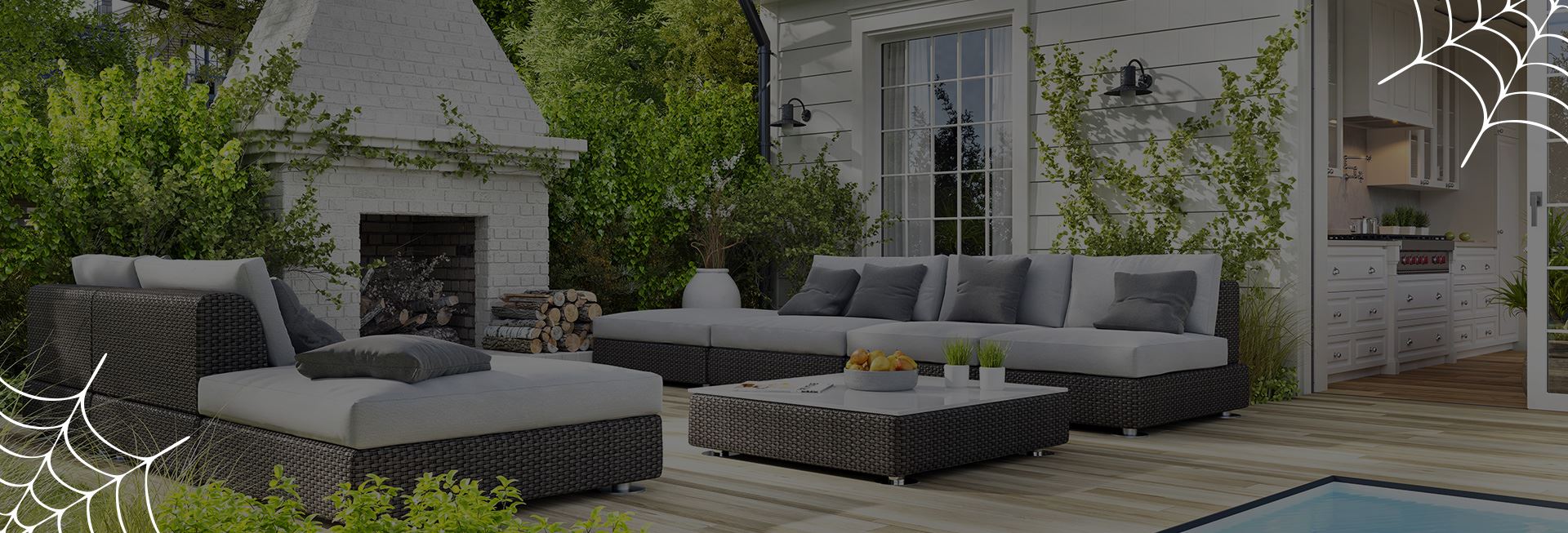
Stinging Insect Identification & Prevention
What are stinging insects?
Stinging insects are those pests that can prick their targets and inject venom. They comprise a large category of pests that includes over 800 wasps and 20,000 bee species. Sometimes the term "wasp" is used as a catch-all. Though these critters can be troublesome for humans, the planet needs them. Their pollination and feeding habits are a factor in the ecosystem's balance. While some build aerial nests, others form them closer to the ground. Social classes have massive colonies. Solitary ones work alone or in smaller cohorts. Most stinging insects prefer vegetated areas, such as parks and gardens. Carpenter and honey bees, yellow jackets, bald-faced hornets, and cicada killers are prevalent in the area.
Are stinging insects dangerous?
Stinging insects may attack in groups, and they can strike many times in seconds, increasing the likelihood of an allergic reaction going from moderate to severe. Common symptoms include localized pain, itching, and swelling. Some alarming ones are fainting, nausea, and breathing difficulties. There is a potential for death.
Why do I have a stinging insect problem?
Simply having a yard or living near a grassy area can make your property a target for stinging insects, especially if there's an abundance of plants, flowers, and trees. Some species, such as carpenter bees, are attracted to wood as well. Sheltered spaces are usually comfortable for these bugs too.
Where will I find stinging insects?
Local stinging insects are liable to be in the following places:
- Carpenter bees: Smaller ones are around 5/16 of an inch long and have dark skin with yellow markings. Larger ones are 3/8 to almost 1 inch long. They can be black, purple-blue, blue, or greenish-black. Males sting and have yellow facial blots. You'll see them near greenery, unfinished or weathered wood, foundations, lawn furniture, fences, and porches.
- Bees: Honey bees (or honeybees) are a little over 1/2 an inch long. Yellow or brown stripes decorate their black or brown bodies. They'll create cocoons inside of tree cavities or along firm edges.
- Yellow jackets: These critters are between 3/8 and 5/8 of an inch long and have extensive wings. Their yellow and black figures are slimmer and less hairy than bees. Ground nests will be near sidewalks, porches, and tree bases.
- Bald-faced hornets: This subgroup is 3/4 of an inch long. White splotches adorn their black bodies. Poles, roof eaves, trees, and similar are their gathering spots.
- Cicada killers: Such insects are 2 to 3 inches long. Color-wise, they're black or red and have yellow blemishes on their segments. Their brown wings are transparent, and they have six legs that are red or orange. Ordinarily, they'll be close to the ground in gardens and lawns.
How do I get rid of stinging insects?
Approaching stinging insects or their nests is dangerous and should be avoided. Even if it wasn't risky, "do it yourself" tricks and expensive retail pesticides aren't for infestations. Further, they can be too harsh for humans, pets, and vegetation. The skilled technicians at Preferred Termite and Pest Control will use industrial-grade treatments that are safe. You can take advantage of our affordable home pest control options by calling us today!
How can I prevent stinging insects in the future?
In addition to our pest control solutions in Salem County, enacting these preventative protocols can discourage stinging insects:
- Paint unfinished wood and weathered decks and sills.
- Varnish wood exposed to sun and rain.
- Seal holes in foundations and rooflines.
- Patch openings from prior swarms.
- Fix leaks.
- Install metal flashing.
- Reduce standing water.
- Flush vents and gutters frequently.
- Use secure garbage containers.
- Trim grass and greenery often.
- Cover ground burrows.
- Distance plants from your house.
Call us at Preferred Termite and Pest Control for more information about stinging insects and how we can help.

Why Choose Preferred Termite & Pest?
-
100% Satisfaction GuaranteeWe make sure that your home and business are & remain pest-free.
-
Service with IntegritySimple, honest work from a business that values its customers like family.
-
Exceptional Customer CareHonest work with effective and informative communication.
-
Locally Owned & OperatedWe believe in the power of community and take pride in helping it prosper.
What Our Customers Are Saying
-
“Very responsive and reasonable rates.”- Colleen M.
-
“Stan is the man! Very courteous and professional. Will use again if needed.”- Corey S.
-
“Had a pesky ant problem and Brian stayed diligent to resolve. Answered all my calls and got back to me really fast. Love the idea of using and hiring local business and Brian makes that easy.”- Robert E.
-
“I have referred them to so many people because I love this company. They are so reliable and responsive when you have an issue. They have come out within a day's notice when I needed them.”- Gabriella M.
-
“Wow! What an amazing job they did for us. Everyone I talked to that works here is exceptionally professional and kind. Very informative, bait/ chemicals are pet friendly, and staff are very respectful.”- Brian P.
-
“I have rarely seen a bug inside my house since using this company. If I have an issue between monthly appointments, Brian or John are here quickly to address it. I highly recommend them.”- Julia C.
-
“Great people, knowledgable, friendly, and they do a great job!! We had ants from pet food, never seen another ant!!!”- Deborah G.
-
“Prompt, friendly and reliable service. If you are shopping around for pest control, stop here. We're glad we did!”- Derek S.


